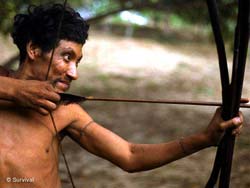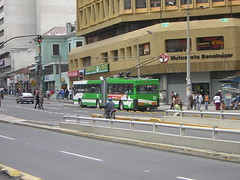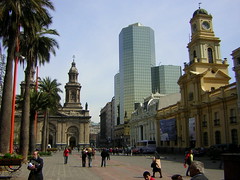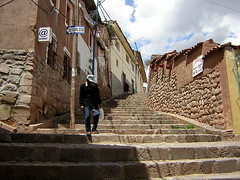Priestess of Cahuachi
Tomb discovered of an elite child dating to the early Nasca Period. With the mummy were various pieces of jewellery made from gold, silver and precious stones.
Paying for a guardian out of his own pocket for 27 years turned out to be worth it for the Italian archaeologists Giuseppe Orefici, director of the Nasca Project. Not reimbursed by his supervisors in Italy nor (shamefully but all too predictably) by the Peruvian state, it is thanks to the Italian’s dedication at the heavily tomb-raided ceremonial city of Cahuachi, a expansive adobe city of countless buried pyramids, that a recent discovery was able to be made.

Cahuachi: Before
Discovered in a recent dig was the mummy of a young priestess, a member of the elite, with several precious items dating from the period of 300-450A.D., the most important period at what, if unburied, is said to be the world’s largest adobe city.
According to Orefici, the girl must have been important. She would have been between 12 and 14 at her time of death and was found inside a series of rooms between the Great Pyramid and what is known as the Orange Pyramid. The building would have formed a small temple that had 4 columns holding up its roof.

Cahuachi: Now
The archaeologists had to remove a layer or reeds and ropes that covered the burial. The body appeared to have been painted and found with an additional vertebra added. She also had slightly deformed forearms, apparently something self-inflicted by having the arms extended vertically for long periods of time – perhaps as a result of a praying. She was wrapped in finely woven fabric that had patterns of orcas (killer whales) found in the southern pacific and contained obsidian arrow heads.
But the most impressive items are the jewels found in the bundle. Of these one in particular stands out; a spectacular golden nose ring bathed in silver, which was found on her nose when uncovered. Also found were necklaces and bracelets of precious spondylus shells among other precious items.
Curiously there were also dozens of heads of birds of prey with their beaks tied closed with fine strings, just some accompanied by their full bodies. Also found were a number of ceramic items, finely decorated with geometric patterns.
Although there is much to discover about the supposed priestess, researchers have begun the journey decipher the meaning of the burial objects.
The find has been taken to the city of Nazca where it is being studied by anthropologist and physicist Andrea Drusini from the University of Padua.
Meanwhile, Oferici will continue to pay the guardian of the site himself, the only way to guarantee the preservation of the temples where most probably more spectacular finds will be made – by archaeologists, not by tomb-robbers.
Tags: adobe, cahuachi, nazca, nazca culture, pyramids, tombs










